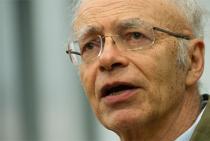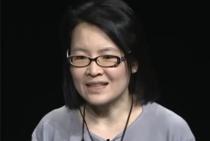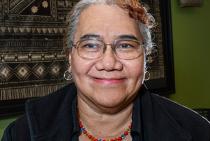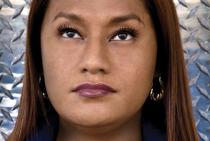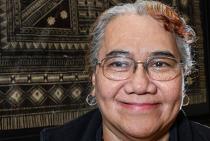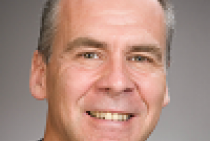Timothy Snyder sees in the public executions of US citizens by federal agents a move to turn the entire US into a border zone.
You are here
Results for Op-Ed World Culture & Society
Monday 2 February 2026
Toronto, Canada
Thursday 31 July 2025
Zurich, Switzerland
Meta CEO Mark Zuckerberg and OpenAI’s Sam Altman have been aggressively promoting the idea that everyone – children included – should form relationships with AI “friends” or “companions.” Meanwhile, multinational tech companies are pushing the concept of “AI agents” designed to assist us in our personal and professional lives, handle routine tasks, and guide decision-making. But the reality is that AI systems are not, and never will be, friends, companions, or agents. They are, and will always remain, machines. The most deceptive term of all is “artificial intelligence”. By Peter G. Kirchschläger
Friday 7 January 2022
Princeton, USA
Although there is much more to be learned about the January 6, 2021, riot at the US Capitol, the motives of the participants can be gleaned from their own statements. Like far-right movements everywhere today, the insurrectionists were driven by resentment of others’ emancipation. Social transformation has been sufficient to generate the rage and resentment over phantom possessions that characterize far-right movements everywhere. An act of destruction can be used to prove that something is one’s own. For example, this psychological dynamic becomes horrendously clear when men decide to kill or disfigure the women they claim to love rather than tolerate their emancipation. By Jan-Werner Mueller.
Tuesday 21 September 2021
Sydney, Australia
A new declaration by Pacific leaders on maritime zone
preservation helps, but must also allow for cultural dialogue. With only 35 out of 48 overlapping boundaries mutually delineated between countries in the Pacific Island region, the Declaration’s call for urgent and collective action to secure maritime zones of Forum member states will require significant diplomatic, legal and cultural dialogue. The latter point could present the greatest challenge if indigenous knowledge is not afforded the same level of recognition by both bilateral partners in a boundary negotiation. -By Anna Naupa.
Monday 19 April 2021
London, United Kingdom
The late Prince Philip, Duke of Edinburgh and husband to the queen, was long celebrated (or parodied) for his distinctive personality. Before his death on April 9, at the age of 99, he was the United Kingdom’s grand, grumpy, and eccentric uncle – a man totally out of step with the modern world. To take just one of many notorious examples, Philip couldn’t understand why servicemen today would need therapy. Back in World War II, he observed, “We didn’t have counselors rushing around every time somebody let off a gun, asking ‘Are you all right? Are you sure you don’t have a ghastly problem?’ You just got on with it.”
Wednesday 25 November 2020
Washington DC, USA
Though it has not come as a surprise, the attack on the credibility of the 2020 election by US President Donald Trump and his Republican Party cannot simply be brushed under the rug of history. Once the norms that underpin constitutional democracy have been tossed aside, there is little left to fight for. America’s failures to address past injustices – including the subjugation of indigenous peoples, slavery, racism, and the deprivations of the poor, immigrants, and the incarcerated – helps to explain why trust in democratic institutions has been so corroded in the first place. Having been made brittle, America’s institutions have long been vulnerable to attack. By Katharina Pistor
Sunday 8 November 2020
Melbourne, Australia
Joe Biden has won the US presidency, but he will have a hard time restoring ethical concerns in a country with so many voters who have become indifferent to the well-being of those outside their immediate communities. Donald Trump has been defeated, but the election showed that more Americans than ever have come to identify with his narcissism. By Peter Singer
Thursday 29 October 2020
Ann Arbor-MI, USA
Unlike the old superpower contest between the United States and the Soviet Union, the incipient cold war between China and the US does not reflect a fundamental conflict of unalterably opposed ideologies. Instead, today’s Sino-American rivalry is popularly portrayed as an epic battle between autocracy and democracy. ...The idea that we can choose only between freedom in an American-style democracy and order in a Chinese-style autocracy is false. The real aim of governance is to ensure pluralism with stability – and countries everywhere must find their own path to this goal. By Yuen Yuen Ang
Tuesday 20 October 2020
Chicago, USA
For all the hand wringing over Donald Trump's authoritarian rhetoric, the 2020 US election is not really about the incumbent. It is about deep-seated suspicion regarding the national government's role, which makes populism a recurring feature of American political history. By Eric Posner.
Wednesday 9 September 2020
Auckland, New Zealand
In many Tongan households in Aotearoa where the children have lost their Tongan reo, it is likely to be because the parents, despite their fluency in the reo, do not use it with their children at home. But Tongan is never irrelevant because it carries thoughts and feelings, knowledge and understanding, world-views and identities, dreams and aspirations – and what it means to be a Tongan human being. By Dr Melenaite Taumoefolau for Tongan Language Week 6 – 12 September 2020.
Thursday 3 September 2020
Zurich, Switzerland
Proponents of digital identification see the COVID-19 pandemic as a once-in-a-century opportunity, with a potential “jackpot market” of nearly eight billion people. In these dangerous times, using digital IDs to help control the spread of the virus and eventually to manage the distribution of a vaccine is often deemed appropriate and necessary. But there are ethical pitfalls. Rather than submitting people to a data-driven and AI-directed system that relies on surveillance and control through digital IDs, we should create more decentralized participatory frameworks. Collaborative approaches, based on the power of civil society, form the backbone of a strategy that uses our social talent to achieve humanity’s collective goals. By Dirk Helbing and Peter Seele.
Tuesday 7 January 2020
Melbourne, Australia
We can begin with the presumption that it is wrong to take human life. President Donald Trump won’t deny that. A year ago, for example, he said: “I will always defend the first right in our Declaration of Independence, the right to life.” Trump was addressing his remarks to anti-abortion campaigners, but a right to life that applies to fetuses must also apply to older humans. Is there an exception for “bad guys,” though? Was the double assassination at Baghdad International Airport ethically defensible? - Peter Singer
Tuesday 20 August 2019
1 comment
Auckland, New Zealand
Dear Australian Deputy PM ... Your fruit grows with the phosphate taken from the islands...where they can no longer bear fruit. Yuki Kihara 2019.
Tuesday 2 July 2019
Wellington, New Zealand
Wherever one looks – the media, political leaders’ rhetoric, or online discussions – one finds a bias toward bad ideals. This is not to suggest that we (or most of us) endorse, say, racism, misogyny, or homophobia, but rather that we grant them efficacy. We believe that extremist ideals must be combated, because we implicitly consider them potent enough to attract new adherents, and contagious enough to spread. At the same time, we tend to take positive ideals less seriously. By Nicholas Agar.
Thursday 6 June 2019
Trento, Italy
In short, the big religion story in the last century is not one of ideological struggle between Christianity and Islam, with Islam winning. It is a story of growing corporatization, with local and folk religions everywhere being gradually but inexorably replaced by churches and mosques that are affiliated with two of the world’s main religious brands. You may regret it or welcome it, but it has proved unstoppable. By Paul Seabright.
Tuesday 14 May 2019
Bangkok, Thailand
Having watched popular protests, from the color revolutions in the former Soviet Union to the Arab Spring, challenge their counterparts’ power, the world’s autocrats have been adopting legal measures aimed at incapacitating civic groups, including pro-democracy movements and human-rights NGOs. Among the most sweeping measures are those enabling officials to monitor and punish activists’ online activities. For activists, pushing back against draconian cyber laws and other forms of digital repression will not be easy, not least because it remains uncharted territory. By Janjira Sombatpoonsiri.
Wednesday 10 April 2019
2 comments
Auckland, New Zealand
Tongan people, a product of centuries of monarchy and social hierarchy, are never born free or equal, and the Tongan language has no word for ‘rights’ as in ‘to have rights’, nor a conventional way of saying that one has a voice in something. Dr Melenaite Taumoefolau examines the gulf between modern and traditional Tongans and why the language has no term for human rights. She says the knowledge gulf between the two camps is huge.
Saturday 23 March 2019
Oxford, United Kingdom
The Commons originally elected a Speaker to help it speak truth to power, find strength in numbers, and resist intimidation. The voices of the less important were no longer drowned out or fragmented, and could challenge entrenched authority. Where did the Speaker come from, and why was the position created during England’s so-called “Good Parliament” of 1376? By Marion Turner
Monday 18 March 2019
Nuku'alofa, Tonga
Celebrating Easter on the right date has always been a source of worry for the Christian churches. Because what is the right date? In early centuries, one tried to follow the Jewish Passover, but that was wrought with problems. Our calendar, or rather the Roman calendar, as it was in use at that time, is based on the yearly movement of the sun, while the Hebrew calendar follows the moon. By Firitia Velt.
Saturday 2 March 2019
Wellington, New Zealand
For some activities, the involvement of a machine spoils the experience. Consider social media. Facebook and Twitter cannot reduce loneliness, because they are designed to serve up a biased sample of social experience. Like digital sugar, they can make a social interaction instantly gratifying, but they always leave an empty feeling behind. By offering merely a simulation of social experience, they ultimately make us lonelier.








